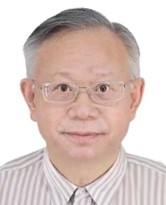Keynote Speakers
 |
Prof. Witold PedryczIEEE Life Fellow
Bio: Witold Pedrycz (IEEE Life Fellow) is Professor in the Department of Electrical and Computer Engineering, University of Alberta, Edmonton, Canada. He is also with the Systems Research Institute of the Polish Academy of Sciences, Warsaw, Poland. Dr. Pedrycz is a foreign member of the Polish Academy of Sciences and a Fellow of the Royal Society of Canada. He is a recipient of several awards including Norbert Wiener award from the IEEE Systems, Man, and Cybernetics Society, IEEE Canada Computer Engineering Medal, a Cajastur Prize for Soft Computing from the European Centre for Soft Computing, a Killam Prize, a Fuzzy Pioneer Award from the IEEE Computational Intelligence Society, and 2019 Meritorious Service Award from the IEEE Systems Man and Cybernetics Society. His main research directions involve Computational Intelligence, Granular Computing, and Machine Learning, among others. Professor Pedrycz serves as an Editor-in-Chief of Information Sciences, Editor-in-Chief of WIREs Data Mining and Knowledge Discovery (Wiley), and Co-editor-in-Chief of Int. J. of Granular Computing (Springer) and J. of Data Information and Management (Springer). |
 |
Prof. Loi Lei Lai IEEE Life Fellow, IET Fellow
|
 |
Prof. Giuseppe Di FattaFree University of Bozen-Bolzano, ItalyBio: Giuseppe Di Fatta is a Full Professor at the Free University of Bozen-Bolzano (Italy) since 2022. From 2006 to 2021, he was with the University of Reading (UK), where he also served as Head of the Department of Computer Science from 2016 to 2021. Between 2004 and 2006, he was at the University of Konstanz (Germany), where he was part of the initial development team of KNIME, a widely used data science and machine learning platform. From 2000 to 2004, he worked with the High-Performance Computing and Networking Institute of the National Research Council of Italy, and in 1999 he was a research fellow at the International Computer Science Institute (ICSI) in Berkeley, California. His research interests include machine learning algorithms, data science, and data-driven applications in both scientific and industrial domains. He has authored more than 140 peer-reviewed publications and has been a member of the IEEE since 2002 and a Fellow of the Higher Education Academy (UK) since 2009. He is also a member of the Technical Committee on Machine Learning (TC-ML) of the IEEE Systems, Man, and Cybernetics Society. Speech Title: Multi-Task Deep LearningAbstract: This keynote explores the principles and applications of Multi-Task Learning (MTL) within Deep Neural Networks (DNNs). MTL introduces an inductive bias by enabling multiple tasks to be learned jointly, with the goal of achieving better efficiency and superior performance compared to learning each task independently. The core idea is that related tasks can benefit from shared representations and domain information, leading to improved generalisation, reduced overfitting, and greater robustness in the presence of limited or sparse data. Beyond its classical formulation, MTL has demonstrated advantages even when task relationships are only partially known or implicitly defined. From this perspective, MTL can be viewed as a form of transfer learning in which knowledge is transferred across tasks during simultaneous training, in contrast to the sequential approach typical of other transfer learning paradigms. The talk will span both theoretical foundations and practical applications, illustrating how MTL principles translate into real-world deep learning systems and architectures. By examining MTL in the context of DNNs, this talk highlights its potential both as a framework for understanding deep learning dynamics and as a pathway toward more efficient, scalable, and interpretable models. |
